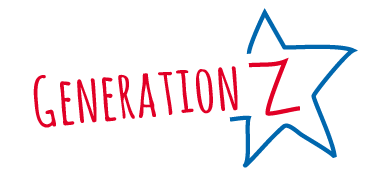The myth perpetrated is that people HATE advertising. Fueling it lately is the heavy media coverage on the rise in popularity of ad blockers. But contrary to popular belief, people don’t categorically hate advertising. (If they did – enough to make it ineffective – then no one would advertise.)
Some even enjoy ads. Think about all the people you know who watch the Super Bowl or the Oscars just for the advertising. And what about those previews shown before movies, and those signs outside of gas stations announcing fuel prices? Those are ads, but rarely seen as such. That’s because people find them informative, helpful and engaging.
People don’t hate advertising. They hate being annoyed. They hate being rudely interrupted when they are trying to do something else. And they hate irrelevance. On the flip side, people love being entertained; they love being informed and feeling “in the know.” They also love great stories and interesting characters. And sometimes those are advertisements. Flo the Progressive Girl has more than five million Facebook fans, and Dos Equis’ The Most Interesting Man in the World is a popular meme.
Consumers understand that advertising subsidizes the content they enjoy, so they will tolerate and even engage with advertising if it is designed for the context in which it is being viewed, as well as the sensibilities of those viewing it.
But make no mistake, there are things people hate about the way some advertising is implemented. Top of the list is that no one likes to feel manipulated or unduly influenced. There’s evidence to suggest that we respond negatively to naked attempts at persuasion. We don’t like to feel like our personal information is being misused or abused. We don’t like big, bulky ads that interrupt and slow down our online experience. In that vein, the industry has come a long way. But we have a long way to go to get to ad nirvana.
Today, as in the past, the best advertising is ingenious at leaving impressions. Even then, it is not the ad that matters. It’s the ideas, impressions and positive feelings about the brand that matter.


14-18 years of age
Population: 23 million
- Engage most with high-energy/action, aspirational themes and celebrity endorsements, as these resonate more
strongly with them. - Loath intrusive, repetitive and stale ads.
- Don’t like unskippable pre-roll, especially on mobile.
- 28% of this demo uses ad blockers.

19-32 years of age
Population: 71 million
- Consume media differently than their older counterparts, exercising greater control over when and where they watch, listen and read content – and on which device.
- Show the highest levels of trust in advertising formats/channels, including TV, newspapers and magazines, and they’re also the most willing to take action.
- Because they came of age with the Internet, they have the highest levels of trust in online and mobile formats.
- Love good, original content and stories.
- Don’t like pop-ups ads, especially unskippable mobile app video pop-ups.
- Most receptive to sponsored content.
- 37% of this demo uses ad blockers (the highest percentage of all generations).

33-49 years of age
Population: 81 million
- Among the most influential generation, but it’s also somewhat forgotten (aka: America’s “middle child”).
- Avid consumers of content online. Three-quarters do so when on social media, and almost one in three consume content posted by brands or companies.
- Many feel like their generation is often forgotten about by advertisers.
- More likely than Millennials or Boomers to purchase a product from a brand whose advertising is specifically targeted at their generation.
- Respond well to messages around kid/tech dilemmas and bonding moments, as well as nostalgia with a deeper purpose and chin-up inspiration.
- Not fans of unskippable pre-roll.
- 24% of this demo uses ad blockers.

50-68 years of age
Population: 65 million
- Not big fans of online banner ads, but they are the most likely demo to click on an online ad by accident.
- Least likely generation to feel that advertisers have overlooked them.
- Facebook is their main platform for video consumption.
- Least receptive to sponsored content.
- Pet-centered ads have greater appeal for older consumers.
- Dislike mobile ads.
- 22% of this demo uses ad blockers.



